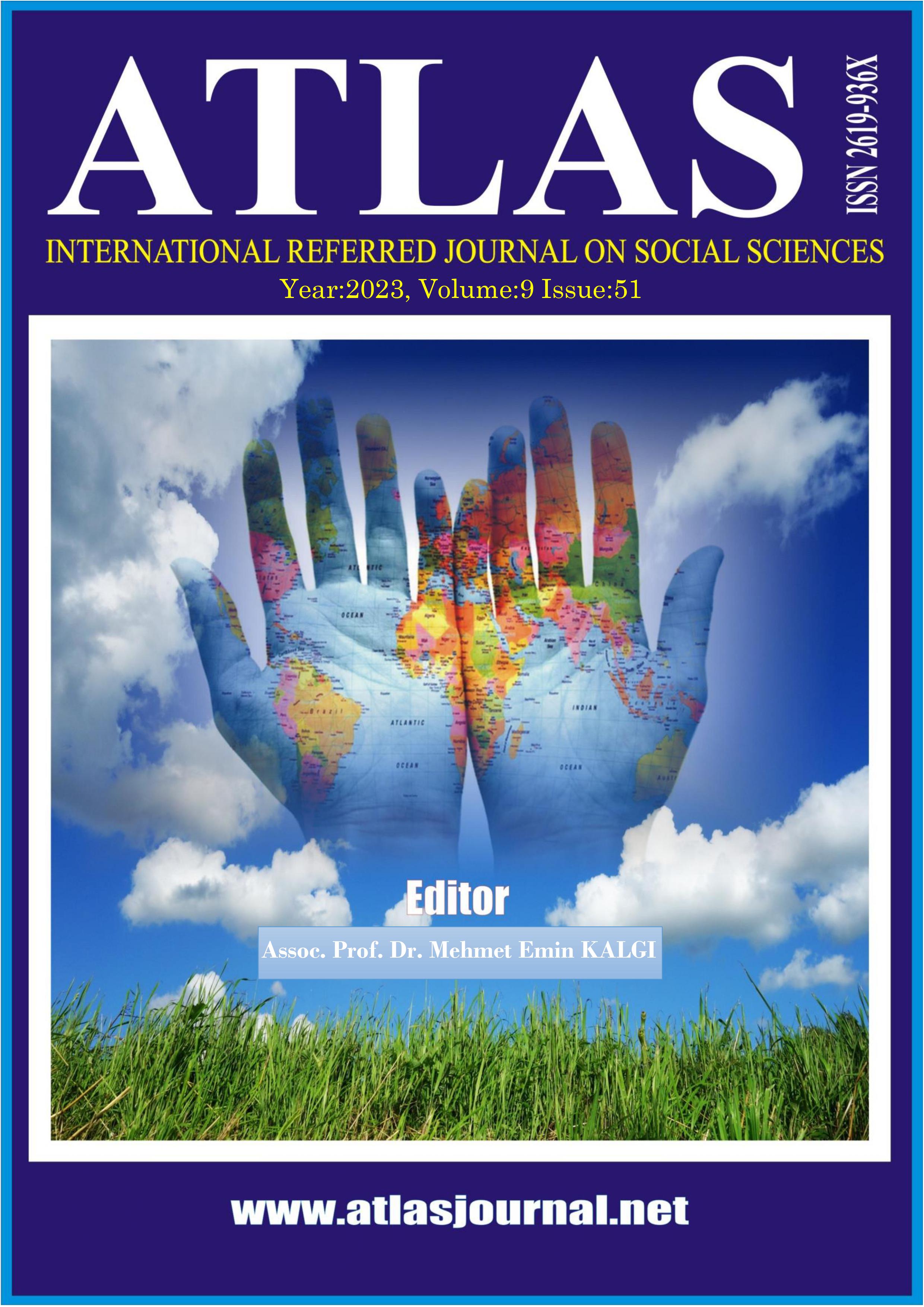Content Analysis of Graduate Thesis Studies on REACT strategy in Science Education in Turkey
DOI:
https://doi.org/10.5281/zenodo.8356523Keywords:
Science education, REACT strategy, Descriptive Content AnalysisAbstract
This study aims to analyze postgraduate theses related to the REACT strategy in the field of science education between 2012 and 2023, both thematically and methodologically. For this purpose, theses published on the Council of Higher Education (YÖK) National Thesis Center until August 2023 were examined. A total of 24 theses at the master's and doctoral levels were subjected to analysis. The theses were analyzed under six main headings: type, year of publication, methods and designs used, sample groups, data collection tools, and data analysis methods. According to the results of the analysis, it was observed that studies on the REACT strategy were initially presented mostly as doctoral dissertations, but an increase in master's theses has been observed in the last five years. Additionally, they were evenly distributed across different disciplinary fields. Particularly, studies on light, force, and motion in physics, the particulate structure of matter in chemistry, and the systems in our bodies in biology were found to be intensive. Alongside quantitative research methods, mixed research methods were also preferred in the theses, while the use of qualitative research methods was limited. The sample groups of the theses generally consisted of middle school students. When analyzing the data collection tools, it is seen that achievement tests and scales are frequently used; attitude and motivation scales stand out. Semi-structured interview forms were preferred as qualitative data collection tools. While t-test was used in quantitative data analysis, it was observed that content analysis technique was widely used in qualitative data analysis.
References
CORD, (1999a). Teaching Mathematics Contextually. Waco, Texas, CORD Communications, Inc, USA.
CORD. (1999b). Teaching Science Contextually. Waco, Texas, CORD Communications, Inc, USA.
Dinçer, S. (2018). “Eğitim Bilimleri Araştırmalarında İçerik Analizi: Meta-Analiz, Meta-Sentez, Betimsel İçerik Analizi”, Bartın Üniversitesi Eğitim Fakültesi Dergisi, 7(1): 176-190.
Doğru, M., Gençosman, T., Ataalkın, A. N. ve Şeker, F. (2012). “Fen Bilimleri Eğitiminde Çalışılan Yüksek Lisans ve Doktora Tezlerinin Analizi”, Türk Fen Eğitimi Dergisi, 9(1): 49-64.
Gilbert, J. K. (2006). “On The Nature of Context in Chemical Education”, International Journal of Science Education, 28(9): 957-976.
Glynn, S. and Koballa, T. R. (2005). “The Contextual Teaching and Learning İnstructional Approach”. (R. E. Yager Ed.), Exemplary science: Best Practices in Professional Development, pp.75-84, National Science Teachers Association Press, Arlington, VA.
Göktaş, Y., Hasançebi, F., Varışoğlu, B., Akçay, A., Bayrak, N., Baran, M. ve Sözbilir, M., (2012). “Türkiye’ deki Eğitim Araştırmalarında Eğilimler: Bir İçerik Analizi”, Kuram ve Uygulamada Eğitim Bilimleri Dergisi, 12(1): 443-460.
Gürdal, A., Bakioğlu, A. ve Öztuna, A. (2005). “Fen Bilgisi Eğitimi Lisansüstü Tezlerinin İncelenmesi”, Buca Eğitim Fakültesi Dergisi, (17): 53-58.
Ingram S. J. (2003). “The effects of contextual learning instructionon science achievement male and female tenth gradestudents, Unpublished Doctoral Thesis”, University of South Alabama, Alabama.
Kanlı, U., Gülcicek, C., Göksu, V., Önder, N., Oktay, O., Eraslan,F., Eryılmaz, A. ve Güneş, B. (2014). “Ulusal Fen Bilimleri ve Matematik Eğitimi Kongrelerindeki Fizik Eğitimi Çalışmalarının İçerik Analizi”, Gazi Eğitim Fakültesi Dergisi, 34(2): 127-153.
Kiras, B. (2019). “Türkiye'deki fen eğitimi konulu tezlerin konu yönelimi ve yöntemsel analizi”, Doktora Tezi, Bolu Abant İzzet Baysal Üniversitesi, Eğitim Bilimleri Enstitüsü, Bolu.
Kula Wassink, F. ve Sadi, Ö. (2016). “Türkiye’de Fen Bilimleri Eğitimi Yönelimleri: 2005 ile 2014 Yılları Arası Bir İçerik Analizi”, İlköğretim Online, 15(2): 594-614.
Küçüközer, A. (2016). “Fen Bilgisi Eğitimi Alanında Yapılan Doktora Tezlerine Bir Bakış”, Necatibey Eğitim Fakültesi Elektronik Fen ve Matematik Eğitimi Dergisi, 10(1): 107-141.
Marshall, C. ve Rossman, G. B. (2014). Designing Qualitative Research, Sage.
MEB. (2018). Fen Bilimleri Dersi Öğretim Programı (İlkokul ve Ortaokul 3., 4., 5., 6., 7. ve 8. sınıflar), Ankara.
Miles, M. B., ve Huberman, A. M. (1994). Qualitative Data Analysis: An Expanded Sourcebook (2rd ed.), Sage, Thousand Oaks, CA.
Navarra, A. (2006). Achieving Pedagogical Equity in The Classroom. Leading Change in Education, Cord Publishing, Texas.
Önder, N., Oktay, Ö., Eraslan, F., Gülçiçek, Ç., Göksu, V., Kanlı, U. ve Güneş, B. (2013). “Content Analysis of Physics Education Studies Published in Turkish Science Education Journal from 2004 to 2011”, Journal of Turkish Science Education, 10(4): 151-163.
Özata Yücel, E. (2013). “Fen bilimleri programındaki ekosistem, biyolojik çeşitlilik ve çevre sorunları konularının öğretim tasarım ve uygulanması”, Doktora Tezi, Uludağ Üniversitesi, Eğitim Bilimleri Enstitüsü, Bursa.
Selçuk, Z., Palancı, M., Kandemir, M. ve Dündar, H. (2014). “Eğitim ve Bilim Dergisinde Yayınlanan Araştırmaların Eğilimleri: İçerik Analizi”, Eğitim ve Bilim, 39(173): 430-453.
Sözbilir, M. ve Kutu, H. (2008). “Development and Current Status of Science Education Research in Turkey”, Essays in Education, Special Issue: 1-22.
Şimşek, N. ve Yaşar, A. (2019). GeoGebra ile İlgili Lisansüstü Tezlerin Tematik ve Yöntemsel Eğilimleri: Bir İçerik Analizi”, Turkish Journal of Computer and Mathematics Education (TURCOMAT), 10(2): 290-313.
Taşar, M., Karaçam, S. (2008). “T.C. 6-8. Sınıflar Fen ve Teknoloji Dersi Öğretim Programının A.B.D. Massachusetts Eyaleti Bilim ve Teknoloji/Mühendislik Dersi Öğretim Programı ile Karşılaştırılarak Değerlendirilmesi”, Milli Eğitim Dergisi, 37(179): 195-212.
Taşdemir, A. ve Demirbaş, M. (2010). “İlköğretim Öğrencilerinin Fen ve Teknoloji Dersinde Gördükleri Konulardaki Kavramları Günlük Yaşamla İlişkilendirebilme Düzeyleri”, Uluslararası İnsan Bilimleri Dergisi, 7(1): 124-148.
Topuz, F. G., Gençer, S., Bacanak, A. ve Karamustafaoğlu, O. (2013). “Bağlam Temelli Yaklaşım Hakkında Fen ve Teknoloji Öğretmenlerinin Görüşleri ve Uygulayabilme Düzeyleri”, Amasya Üniversitesi Eğitim Fakültesi Dergisi, 2(1): 240-261.
Ulutaş, B., Üner, S., Turan Oluk, N., Yalçın Çelik, A. ve Akkuş, H. (2015). “Türkiye’deki kimya eğitimi makalelerinin incelenmesi: 2000-2013”, Journal of Kirsehir Education Faculty, 16(2): 141-160.
Downloads
Published
How to Cite
Issue
Section
License
Copyright (c) 2023 Atlas Journal

This work is licensed under a Creative Commons Attribution-NonCommercial 4.0 International License.


